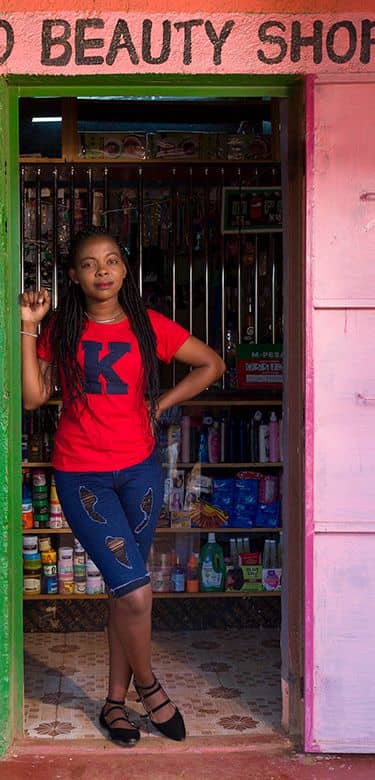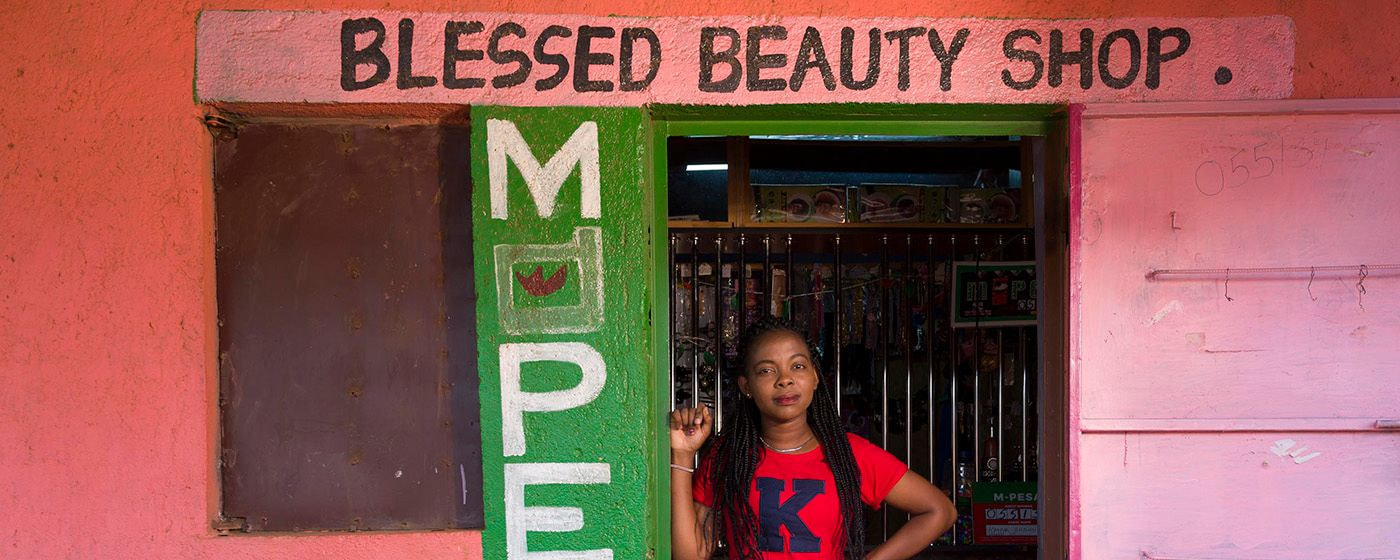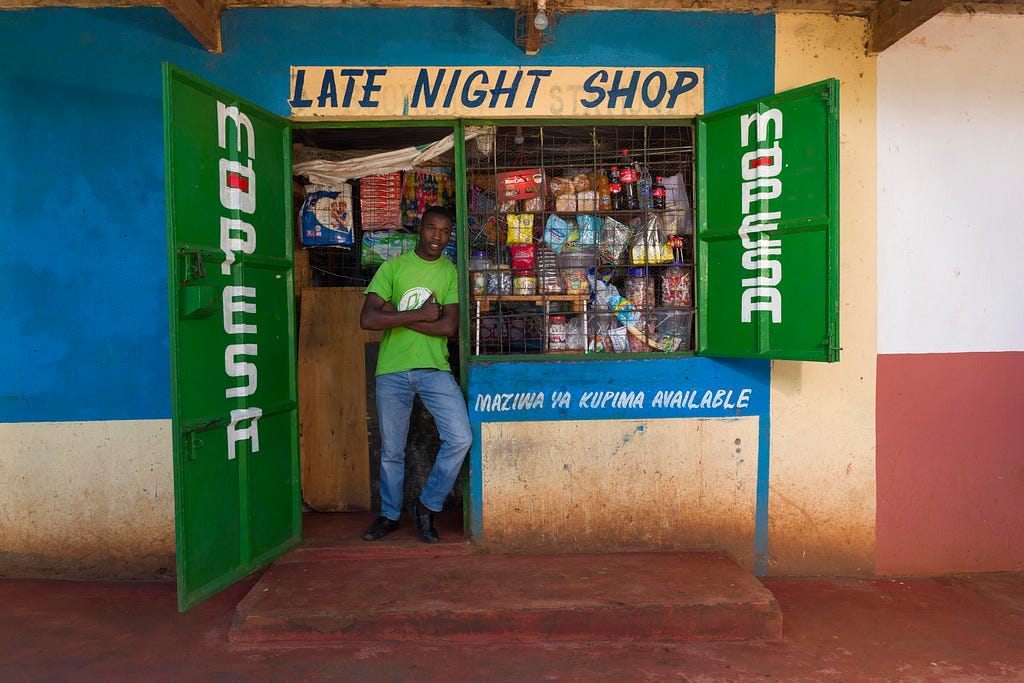MESH: The first online community for entrepreneurs in the informal economy
Our programs
Connecting Kenyan entrepreneurs to information, peers, role models, and resources to empower them to build thriving small businesses
Why this program?
Why this program?
- Over one million young people enter the Kenyan job market each year, but 95% of them will never find formal employment.
- Today, 100% of 15-24-year-olds in Kenya report that they’re having to earn some money to help cover or supplement their costs, up from just 47% in 2016.
- These young people are not just working in the informal sector; three million of them run micro-businesses of their own, often creating jobs for others.
- Almost a third of 15- to 24-year-olds in Kenya run businesses—selling snacks, growing vegetables, or running dukas (convenience stores) that meet the day-to-day needs of many underserved households across the country. Working young Kenyans are adding $539 million to the economy every month.
Program overview
Despite young Kenyans’ reliance on and contribution to the informal economy, the education system does little to equip them for it. Schools still prepare young people for a formal working world that is simply unavailable to them. To empower these young people to build thriving small businesses, Mastercard Strive has partnered with MESH, the first online community for entrepreneurs in the informal economy. Part of the Shujaaz Inc network of social ventures, MESH combines business skills programs with peer-to-peer networking and role-model mentoring. As part of the MESH community, members can access an extensive library of peer training videos and connect with peers and mentors with complementary skills or interests.
Since 2022, Mastercard Strive has supported the development and growth of the MESH platform and the creation of training tools that were unavailable to young entrepreneurs through traditional education pathways.
These are some highlights from the results of the first stage of the partnership between Mastercard Strive and MESH:
- Business Growth: 78% of MESHers increased their income in the past year, with 32% more businesses engaging 4+ employees.
- Resilience: 68% of businesses are thriving beyond 12 months, well above the national average.
- Efficiency: MESHers are working smarter, saving time and money, with 9 in 10 reporting the ability to set aside business savings.
- Digital Leap: Increased adoption of laptops, Wi-Fi, and digital tools is helping MESHers transform their businesses.
- New Skills: Record-keeping and financial goal-setting saw the most significant improvement among entrepreneurs.
- Growing Opportunities: To date, some 400,000 MESHers sign in to the platform each month to share business advice, advertise their products, and access video content.
You can learn more about the lessons learned from this collaboration by reading the Practice Paper produced by MESH, Mastercard Strive, and Caribou Digital, to summarize the insights from two years of implementation. Read and download HERE.
In summer 2024, Mastercard Strive expanded its support to MESH. This new phase will develop, pilot, and launch a credit product for small business entrepreneurs on the MESH platform. This will be in collaboration with one or more innovative credit provider(s) willing to co-create, test, and iterate to reduce lending risk by using MESH’s data trails and community approach to financial education and responsible borrowing. We expect up to 5,000 entrepreneurs to access finance during this pilot period, boosting their growth and financial resilience.
About MESH
MESH is the first online community for young entrepreneurs in Kenya’s informal economy. MESH offers young people:
- Access to tailored business tools, training, a peer network, and mentorship;
- Seamless access to financial services, capital, and formal sector opportunities;
- Control over their livelihoods and growth prospects; and
- Autonomy, social capital, and personal validation.
Launched in 2021, the platform is already thriving. Today, MESH has more than 400,000 members who are logging in to connect, learn, share tips, access new opportunities, and to start up and scale their businesses. The MESH app is available for free through Google Play or on www.mesh.life.
About Shujaaz Inc
Two-time Emmy Award-winning network of social ventures Shujaaz Inc launched in 2009 with a youth-facing multimedia brand. Their namesake first venture, “Shujaaz,” follows the story of a 19-year-old radio DJ and influencer living in the outskirts of Nairobi. The platform, which evolved from a comic book, brings young people together to talk about their experiences and the challenges they face. More than a decade on, Shujaaz (which means “hero”) reaches 9.5 million 15- to 24-year-olds—71% of young Kenyans and 15% of young Tanzanians.
“I have been on MESH for more than two years and so far the journey has been good. In terms of business, I have better strategies on how to handle business, like record keeping, savings, customer retention, customer feedback, and many more. Through posting my hustle daily, I have also gotten a lot of customers. I can't wait to see what the future holds for me on MESH.”
KAstar
MESH small business user
Share this article



